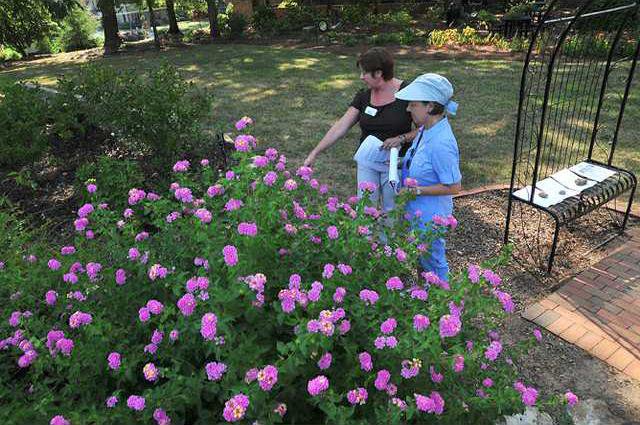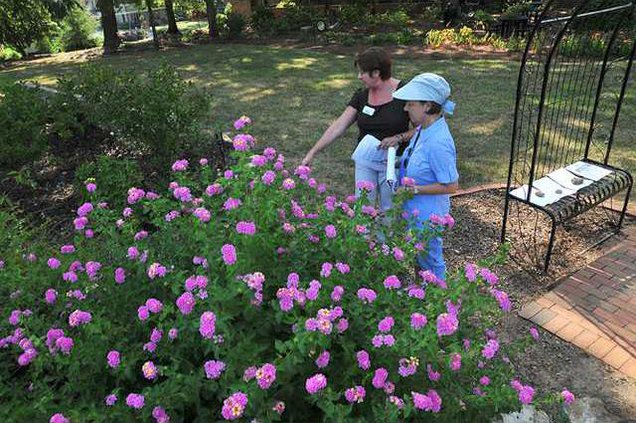For more information about water-wise plants and native species, visit the University of Georgia Cooperative Extension website at www.extension.uga.edu or call the local office at 770-535-8293.
With a little thought, home gardens can not only please your senses, they can also put a few extra cents in your pocket. Thursday morning, the city of Gainesville, University of Georgia Cooperative Extension and the Hall County Board of Education hosted "Water Wise" garden tours at the Gardens on Green. The goal of the tours, which were led by members of the Hall County Master Gardeners, were to show attendees how proper planting can reduce watering costs for home gardens. According to Michael Wheeler, Hall County extension coordinator, two keys to water-wise gardening is proper plant selection and mulching. "The use of (organic) mulch helps to keep the soil cool, and it also helps the soil retain moisture," said Wheeler, who was one of the garden tour guides. Organic mulch is made from natural materials like wood chips, leaves and pine needles. "After about five years, as the mulch (breaks down) it mixes with the soil and acts as food for your garden," Wheeler said. "It increases the porosity of the soil, which allows better infiltration of water down to the roots of plants." Cooler soil and increased porosity both reduce the amount of water needed for plant survival, thus helping to water usage and costs. Planting trees like eastern hemlock or tulip poplar that provide shade can also help to cool soil temperature and reduce water usage. Planting native species is another water conserving option, Wheeler says. "With any plant, you have to baby them a bit until they take root, but after that, native plants can be less work. Native species are drought resistant because they are used to the (local) water conditions, so mature plants require less watering (than nonnatives)." Like with other plants, the key to native species thriving in your home garden is planting them in the right site, with the right conditions, Wheeler says. This means doing things like making sure you don’t put a plant that requires partial shade in a sight that is in direct sunlight. The Gardens on Green, 711 Green St. in Gainesville, provide a number of living examples of water-wise plants that will thrive locally. Each of the garden’s plants are labeled to help with easy identification. In addition to pollinator attractors like the butterfly bush and the purple coneflower, the Green Street garden also includes a section devoted entirely to "Georgia Gold Medal Plants," which thrive in Georgia. If you have questions about which plants you should include in your landscape, Wheeler says you can call the local extension office for assistance or visit the group’s website for resource materials.

